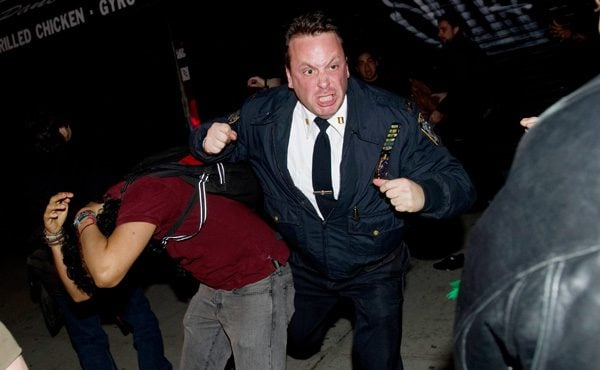1. When your actions are lawful, honorable and just, you perform them in the light of day. You have nothing to be ashamed of and nothing to hide. You don’t need to seek out publicity and the camera’s eye, but you have no cause to avoid them because you can be proud of your actions, knowing them to be lawful, honorable and just.
2. If your actions are such that you perform them in the dark of night, avoiding cameras and witnesses or even employing the threat of force to ensure secrecy, then it is obvious to all — to you and to everyone else — that your actions are not lawful, not honorable and not just.
3. The only exception I can think of to the previous statement is the tactical secrecy sometimes necessary for a military assault against a powerful enemy.
4. Police are not soldiers and citizens are not their enemy. When police come to imagine otherwise, they become, by their own declaration, the enemies of the public they were commissioned to serve. This is the opposite of what police are supposed to be, the opposite of why police are commissioned as police. Police who regard the public they are commissioned to serve as “the enemy” have forfeited any legitimate claim to their arms and badges.
5. The police officer in this photograph was commissioned “to serve and protect” the public. In this photograph, he is doing neither of those things.
6. One might argue that the police officer in this photograph is “serving,” but that who or what he is serving is something other than the public and the public interest. Charlie Pierce offers such an argument:
Your right to peaceably assemble for the redress of grievances, and how you may do it, and what you may say, will be defined by the police power of the state, backed by its political establishment and the business elite. They will define “acceptable” forms of public protest, even (and especially) public protest against them. …
Late last night, the New York Police Department, apparently decked out for a confrontation with the Decepticons, cleared Zuccotti Park of the campers who had occupied it for nearly three months. It was, as all of these things have been, a fully militarized operation, launched with a maximum of surprise by armored tactical police who even brought a helicopter, in case they needed air support.
7. The police officer in the photograph above is very angry. I believe he is angry because he was ordered to do what he is doing in the dark of night, hidden from the press or other witnesses, and thus he knows that what he was ordered to do is something other than lawful, honorable and just. And I believe that he is angry because, realizing that, he chose to skulk about in the dark following those orders anyway, and thus he has just learned something unpleasant about himself.
















